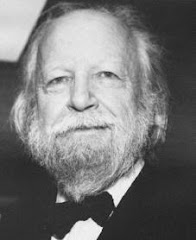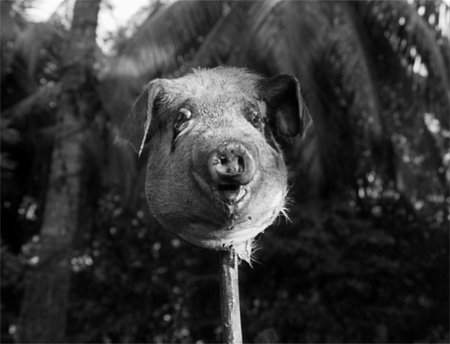Jason: Hi Justin. How are you enjoying Lord of The Flies by William Golding?
Justin: The Lord of The Flies is an interesting novel where characters are manipulated and used in such a way that can easily relate to reality.
Jason: Yea i agree. Which character do you like the most?
Justin: Piggy. He is a character who is the braniac of the group. He tries very hard to contribute but is continually shunned out by other people because of his weight.
Jason: I know aye. What about the first time Ralph called an assembly? Remember how he told Ralph how to blow the conch. He said ; " He said you blew from down here. Piggy laid a hand on his jutting abdomen. You try, Ralph. You'll call the others." It shows how he's the smart one.
Justin: Piggy in the story i think relates to the old past life and trys to maintain his sanity. I think that piggy is the voice of reason and is the groups adult like figure.
Jason: Yea that's so true. Like the time the boys decided to make a fire, no one listened to him and instead just ran off. In the book, the quote " Piggy watched them in digust. Like a crowd of kids..." shows how he represents the adult of the group.
Justin: Also i think the boys see Piggy as the superfluous tag-a-long that's always there and annoying them. They always use him to their will.
Jason: Yea i agree. Like the part when they first try to start a fire, they just knock him around and steal his specs without his consent. There's a quote that shows this, " Ralph made a step forward and Jack smacked Piggy's head. Piggy's glasses flew off and tinkled on the rocks. Piggy cried out in terror : My Specs!" They completely ignored him and just used his specs to start the fire.
Justin: Piggy has a boisterous, intellectual and scientific personality. He represents the scientific, adult like figure and is the voice of reason. He acts as Ralph's "lieutenant" and often gives Ralph advice in assemblies.
Jason: Agreed.

Lord of the Flies is based around the time of World War II and tells the story of a group of school boys marooned on a tropical island after their plane is shout down during the war. The novel explores the idea of human evil with the real life violence and brutality of World War II that Golding experienced. He uses lots of biblical allusions such as Simon portraying a Christ figure and uses the Lord of The Flies as a manifestation of the Devil. The Lord of The Flies represents everything wrong with ourselves, evil and the inner evil within all humans, or in this case the "beast". Simon confronts The Lord of The Flies but is also hallucinating at the same time. The Lord of The Flies even says he's a part of Simon ; " You knew didn't you. I'm part of you? Close. Close. Close!."
 http://ncowie.files.wordpress.com/2007/11/lotf4boys.jpg
http://ncowie.files.wordpress.com/2007/11/lotf4boys.jpgThe Boys attacking one another as they change savagely.
The group of marooned school boys, free from the rules and structures of civilization and society, slowly drift into savagery. They are also troubled by a "beastie" on the island first brought up by a littlun. The fear of this "beast" begins to toy with the boys and is the reason these once civilised schoolboys begin their fall into the pitof savagery. This quote shows the slow but ever so changing attitude of the boys. "The best thing we can do is get ourselves rescued. Jack had to think for a moment before he could remember what rescue was." The boys separate and change to two different factions which is owned by Ralph and Jack. Some behave peacefully, work together to maintain order and achieve common goals, while others rebel and seek only anarchy and violence. A quote which is said by Jack is an example him being a rebel: "Listen all of you. We hunt and feast and have fun. If you want to join my tribe come and see us." In the now small world that their trapped in, Golding portrays the fundamental human struggle between the civilizing instinct, the impulse to obey rules, behave morally, act lawfully, controlling our savage instincts, the desire to seek brute power over others, act selfishly, scorn moral rules, and indulge in violence.
The novel is also very allegorical, having many things representing the significance of the central themes of the novel. The conch representing civilization and order, the fire as hope of rescue, the beast as the fear that draws out the savagery of the boys, Ralph as leadership and authority, Piggy as intellectual aspects of life, Jack as savagery, Simon as natural human goodness and Roger as brutality and bloodlust. These symbols are constantly subtly mentioned through out the novel creating a more exciting atmosphere when reading.

http://i.dailymail.co.uk/i/pix/2008/08/22/article-0-0262985F00000578-248_468x427.jpg
Ralph vs Jack. A constant battle between leadership and civilization versus savagery and barbarianism.





